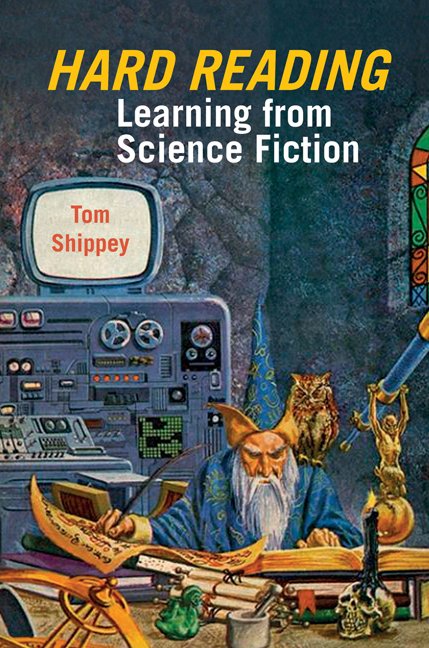Book contents
- Frontmatter
- Dedication
- Contents
- List of Figures
- Note on References
- A Personal Preface
- What SF Is
- SF and Change
- SF and Politics
- 11 A First Encounter with Politics
- 12 Language Corruption, and Rocking the Boat
- 13 Just Before the Disaster
- 14 Why Politicians, and Producers, Should Read Science Fiction
- 15 Saying (When Necessary) the Lamentable Word
- References
- Index
11 - A First Encounter with Politics
from SF and Politics
- Frontmatter
- Dedication
- Contents
- List of Figures
- Note on References
- A Personal Preface
- What SF Is
- SF and Change
- SF and Politics
- 11 A First Encounter with Politics
- 12 Language Corruption, and Rocking the Boat
- 13 Just Before the Disaster
- 14 Why Politicians, and Producers, Should Read Science Fiction
- 15 Saying (When Necessary) the Lamentable Word
- References
- Index
Summary
This piece had a complex gestation, which may explain some of its awkward spots – though it touched enough of a chord to be adopted as part of the Open University manual in Social Studies (1981), a couple of years after it was printed. In the late 1970s, science fiction criticism was still relatively uncommon in academic circles – I had published four articles in ten years (see items 4, 5, 9 and 10, above), but they had all been in semi-fan or low-circulation journals. The time was ripe, though, for something more ambitious, and, as a Fellow of St John's College, Oxford, I had the appropriate credentials. I was accordingly approached to contribute to a collection which would put sf criticism on the map.
What would I like to write about? Heinlein, I suggested. No, there was a book about Heinlein already, by Alexei Panshin (1968). OK, I said, I'll write something theme-based, not author-based, and the theme will be the Cold War. That was fine, but I had not realised how contentious was the topic of who started the Cold War. Was it the case that Truman had dropped the bomb on Japan in order to intimidate the Russians, as has been suggested? Possibly as a result of talking to Brian Aldiss, who in 1945 was a teenage soldier in the Far East, I had always assumed that his likely motive was anxiety over the cost in Allied lives of an invasion of the Japanese mainland (lives which might have included Brian's, as Brian often remarks). H. Bruce Franklin has added a further dimension to the debate by pointing out in his book War Stars (1988) that Truman had been brought up on wonder-weapon stories in mainstream journals like Saturday Evening Post, while David Seed's American Science Fiction and the Cold War (1999) has both updated and widened our vision. I had failed, however, to think about such matters, and the article as printed in 1979 was the result of complex rewriting – though in the version printed here I have cut out several pages laboriously trying to place sf within ‘literature’ and within ‘criticism’, much of it repeating points made in item 5, above about the importance of the magazine contexts.
- Type
- Chapter
- Information
- Hard Reading: Learning from Science Fiction , pp. 207 - 228Publisher: Liverpool University PressPrint publication year: 2016

